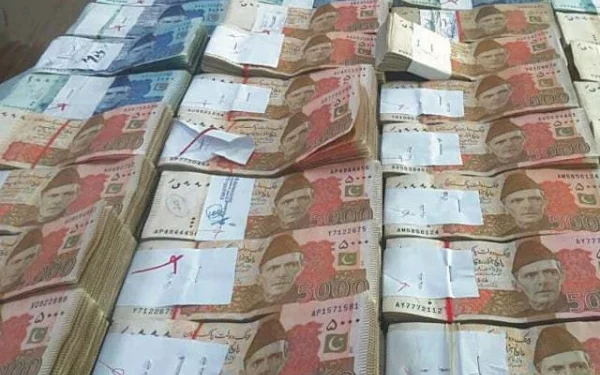Islamabad, Pakistan — The federal government has formally sought the approval of the National Assembly for supplementary grants totaling Rs 345 billion for expenses incurred during the ongoing fiscal year without prior parliamentary approval. This unexpected move has sparked renewed discussions about fiscal responsibility, transparency, and budgeting discipline in Pakistan’s financial governance.
According to the details shared with the National Assembly, these expenditures were made outside the original approved federal budget for the fiscal year 2024–25. Importantly, officials have clarified that these expenses do not include any allocations related to a possible war with India, countering speculation over recent defense-related surges.
Supplementary Grants: Understanding the Concept
Supplementary grants are additional budgetary allocations requested by the government to meet unforeseen or under-budgeted expenses that arise during the course of a fiscal year. In principle, such expenses are expected to be rare and should only be approved by the parliament after thorough scrutiny.
However, the Rs 344.6 billion sought in supplementary grants reflects a significant deviation from fiscal discipline and budget adherence. While this year’s figure is marginally lower than the previous fiscal year’s supplementary spending, critics argue that the recurring pattern of seeking post-facto approvals undermines the credibility of Pakistan’s budgeting process.
Defense Spending Clarified: No War-Related Allocations
Addressing concerns about rising defense expenditures, Finance Minister Muhammad Aurangzeb clarified in a parliamentary briefing that the Rs 60 billion allocated as a supplementary defense grant was not connected to any potential military conflict with India.
He stressed that if there had been any expenses incurred in this regard, the Pakistan Army managed them within its pre-approved annual budget, reaffirming the government’s position that no exceptional war-related financial outlays were made during the fiscal year.
This statement comes amid regional tensions and heightened speculation over possible cross-border conflicts. The minister’s reassurance was intended to ease public anxiety and international concern regarding Pakistan’s defense posture and financial priorities.
Breakdown of the Rs 345 Billion Supplementary Expenditure
The government has provided a detailed list of the major supplementary grants, illustrating the wide range of sectors and initiatives covered by the additional spending. Below is a summary of the major allocations:
1. Power Sector Payments – Rs 115 Billion
A significant portion of the supplementary funding—Rs 115 billion—was allocated to clear payments to Independent Power Producers (IPPs). These payments were likely made to reduce the circular debt burden and maintain power generation capacity amidst growing energy demands.
2. Defense-Related Grants – Rs 59.5 Billion
This allocation included:
- Rs 23.3 billion to enhance the army’s counter-terrorism capabilities
- Rs 8 billion for undisclosed defense projects
- Rs 7 billion for infrastructure development at the Jinnah Naval Base, Ormara
- Rs 8 billion for the Special Security Division (North and South), primarily responsible for CPEC protection
- Rs 5 billion for internal security allowances
- Rs 2 billion for technological upgrades to the Inter-Services Public Relations (ISPR)
- Rs 1.3 billion for additional defense requirements
This comprehensive defense package, although not war-related, underscores Pakistan’s ongoing security challenges, especially related to terrorism, border security, and strategic infrastructure protection.
3. Development and Infrastructure – Rs 19.2 Billion
An amount of Rs 19.2 billion was allocated for Pakistan Public Works Department (Pak PWD) projects across the country. These include construction, maintenance, and rehabilitation of public infrastructure, particularly in underserved and rural areas.
4. Public Transport and Local Projects – Rs 7.2 Billion
The government also allocated Rs 7.2 billion for Green Line Bus Service extensions and small-scale urban development projects aimed at improving public transportation and city planning.
5. Ministry of Interior & Tribal Development – Rs 4.3 Billion
Additional funds were provided to the Ministry of Interior to strengthen internal law enforcement, support the National Forensic Agency, establish check posts, and fund women’s welfare and water schemes in the tribal regions.
Budgetary Impact and Source of Funds
According to the Ministry of Finance, these supplementary grants did not inflate the total size of the budget. Instead, they were financed by reallocating funds from underutilized budget lines, allowing the government to respond flexibly to emerging needs.
However, fiscal experts and opposition parties argue that this practice raises serious concerns about budget planning, accountability, and prioritization of national resources. The fact that such large expenditures were made without pre-approval by parliament weakens democratic oversight and could violate principles of fiscal transparency.
IMF Agreement and the Question of Compliance
As part of its Extended Fund Facility (EFF) program with the International Monetary Fund (IMF), Pakistan had made specific commitments regarding fiscal discipline. These included:
- Avoiding unbudgeted expenditures
- Securing prior parliamentary approval for any additional spending
- Restricting supplementary grants to exceptional circumstances, such as natural disasters
The IMF has repeatedly emphasized the need for transparent and rule-based public financial management in Pakistan. The Rs 345 billion in supplementary grants, although technically justified by the government, could be seen as a breach of the agreed framework, unless thoroughly explained and defended.
Failure to comply with IMF stipulations may jeopardize future loan tranches, which are crucial for Pakistan to meet its external financing needs and stabilize its economy.
Approval Mechanism and Role of ECC
According to government insiders, most of these supplementary grants were issued after approval from the Economic Coordination Committee (ECC)—a powerful body that oversees economic decisions but is not a substitute for parliamentary scrutiny.
While ECC approval provides some level of oversight, fiscal watchdogs argue that parliament must be the final authority on budgetary matters to maintain constitutional integrity and financial transparency.
Opposition’s Criticism and Public Response
Opposition lawmakers have strongly criticized the move, calling it a breach of public trust and a reflection of poor governance.
Speaking on the floor of the National Assembly, a senior opposition member said:
“This government promised austerity, yet it spends Rs 345 billion without informing the people’s representatives. This is not just a financial issue; it’s about transparency, democracy, and accountability.”
Meanwhile, citizens and analysts on social media have expressed mixed reactions. Some believe the funds were essential for national security and infrastructure, while others demand greater scrutiny and better planning to avoid surprises in national finance.
Conclusion: A Test for Fiscal Credibility
The approval of Rs 345 billion in supplementary grants raises serious questions about the government’s budgeting practices, its commitment to IMF conditions, and the broader issue of parliamentary oversight in financial matters.
While the government maintains that these funds were allocated responsibly and without increasing the budget deficit, experts call for structural reforms in the budgeting process, greater transparency, and a legal framework to prevent arbitrary expenditures.
As the National Assembly debates the budget for the upcoming fiscal year, this issue is expected to dominate proceedings, especially as Pakistan continues to navigate economic uncertainty, external debt pressures, and the need for institutional reforms.

























